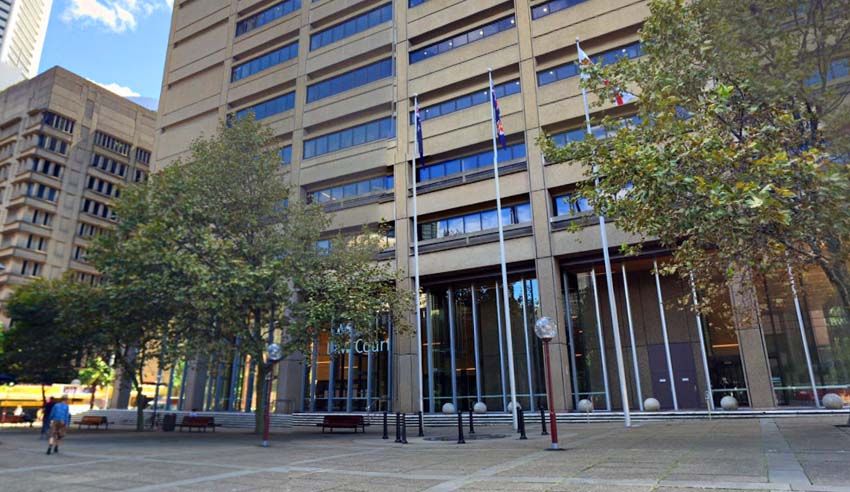An NSW police prosecutor has avoided a referral to the Legal Services Commissioner for vilifying his late father’s wife in a number of Facebook posts that included accusing her of being a “thief and a murderer” and referring to her as a “black widow, a grim reaper, a wicked witch” who he alleged played a role in the death of his father.

The NSW Supreme Court made a ruling that police prosecutor Clint Nasr would not be referred to the Legal Services Commissioner over “vile” Facebook posts he made about his late father’s wife and instead concluded that publishing its reasons would be a sufficient warning to Mr Nasr and other practitioners of their duties to the court.
Mr Nasr was permitted to be heard on this matter before the Supreme Court made a decision about whether this conduct should be referred to a legal body for further investigation. The affidavit touched on his Facebook posts in addition to the installation of two hidden cameras and a dossier of material that was handed to police with the view of having them lay charges against his late father’s wife.
“Mr Nasr is correct to state that his conduct did not occur in connection with the practice of law; were that so, I would have no hesitation in referring him to the Legal Services Commissioner,” Supreme Court Judge Mark Leeming commented.
“Although I consider that Mr Nasr has less insight into his conduct than might be expected of a legal practitioner, I think that given the history he has recounted, it is unlikely that anything that might ensue from such an investigation would have any more beneficial effect than the publication of these reasons, which themselves would operate as sufficient enough warning to Mr Nasr and to other [practitioners].”
Judge Leeming noted that Mr Nasr’s affidavit acknowledged fault but that he often blamed others and, more seriously, made allegations of procedural unfairness.
In one claim, Mr Nasr said the practice adopted by the wife’s counsel in tendering his Facebook posts “precluded me the fundamental process of being heard”. Judge Leeming disagreed, clarifying that the Facebook posts were annexed to an earlier affidavit of the wife and were read into evidence without objection. It should have come as no surprise to Mr Nasr that he would be asked to answer to the posts.
Mr Nasr also claimed that the opposing counsel subpoenaed police documents “at the 11th minute in the 11th hour” and that the wholesale tendering of those documents precluded him the fundamental process to be heard. The court again objected to this, explaining that all documents were given to Mr Nasr’s solicitors.
Judge Leeming said he did not accept that there was any denial of procedural fairness to Mr Nasr either in relation to the Facebook posts or in relation to the production and tender of a small number of documents produced by the NSW Police.
“I believe that Mr Nasr does not fully appreciate that the allegation that a party has been denied procedural fairness is a serious one, and one that should not be made without foundation, and to that extent, the wrongness of his making groundless complaints attracts less opprobrium than would otherwise be the case,” he added.
In the affidavit, Mr Nasr also asserted that the posts were an “act of self-defence” in what he said was a response to the wife’s “relentless” petitioning of the community to “garner support of uninformed persons and set them up against the family”. While the court found it impossible to determine the wife’s part in the escalating conflict, it noted that she and Mr Nasr’s siblings were not legal practitioners.
“It is to my mind a far more serious thing for a legal practitioner to name someone as a thief and a murderer without proper foundation, vilifying her to her face, to her community, to her church, and to the wider public. Some of the people who heard and read what Mr Nasr wrote would have known that he was a legal practitioner and a police prosecutor, and may for that reason have given greater credence to his claims, even if they were unconnected with legal practice,” Judge Leeming found.
Judge Leeming accepted that Mr Nasr had made an unconditional apology to the wife and acknowledged Mr Nasr’s comments that the incident was completely out of character for him and would be extremely unlikely to occur again.
The entire judgment can be read on AustLII and JADE: Ibrahim v Nasr (No 2) [2021] NSWSC 1481 (18 November 2021).
